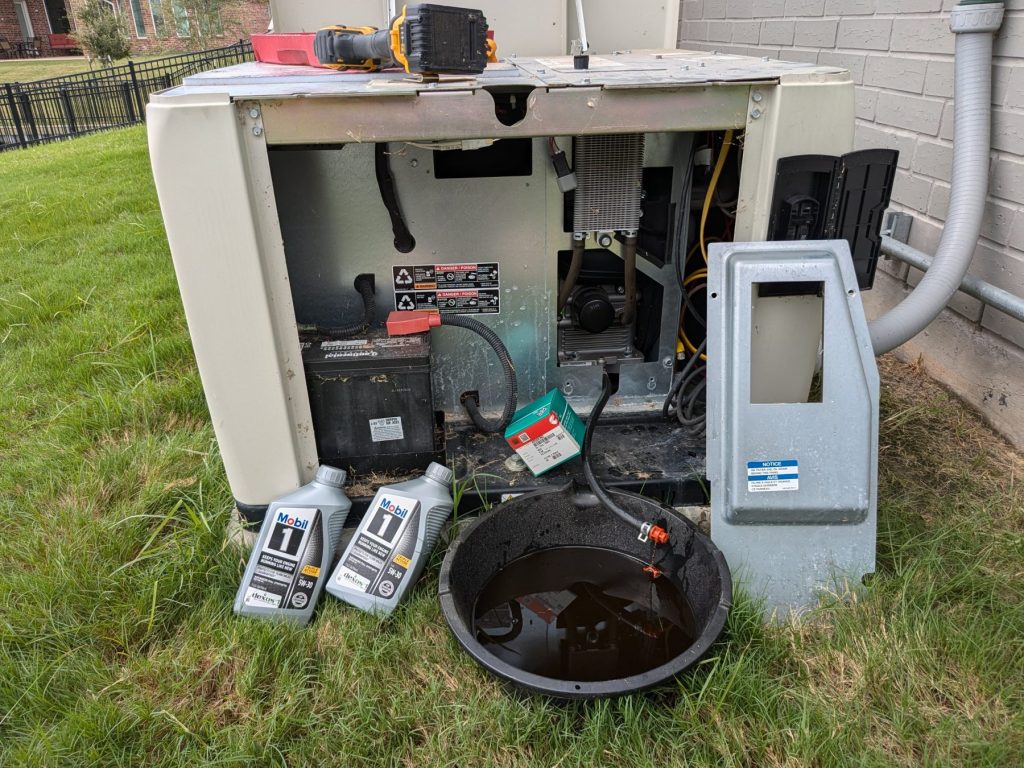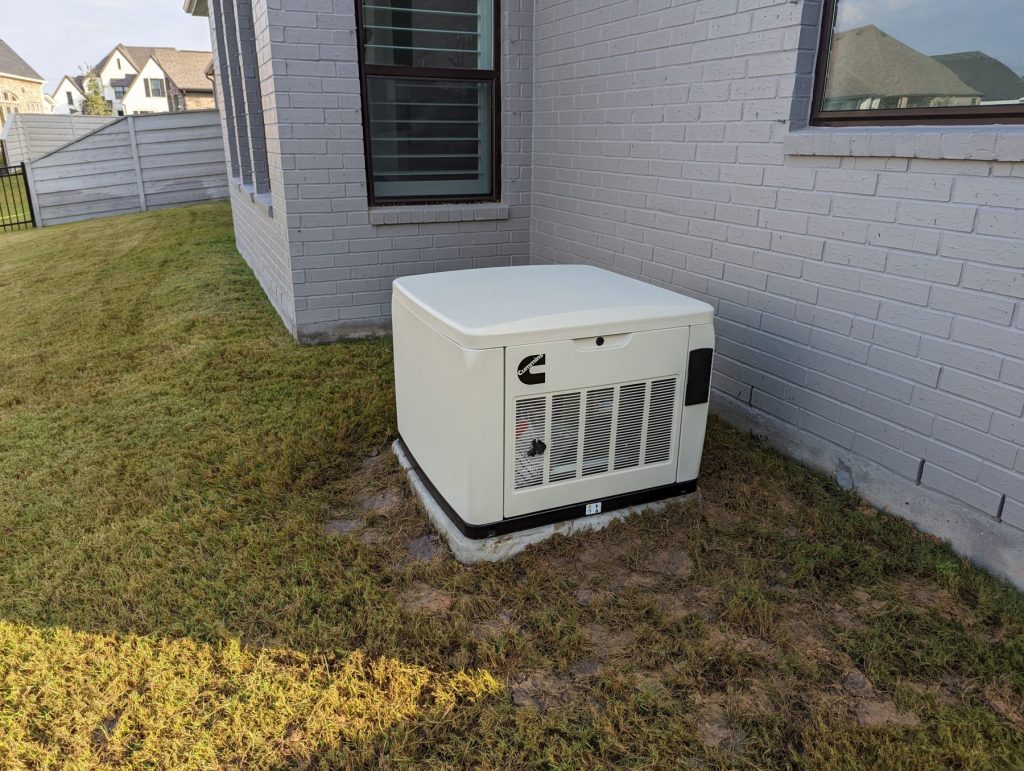Which is best for home backup power, a fuel burning generator or a home backup battery?
The answer is really neither because “best” is relative to your perspective, preferences, and situation. I never found a resource that tried to fairly lay out the comparisons and tradeoffs. So, here’s my take with as little bias as I can.
Disclaimer: This is a moving target. One small shift in technology, market conditions, government regulations, or whatever could make this analysis obsolete. But logical thinking never goes out of style. In this article, generator is a source of electricity that burns fuel to make power, not a battery pack that stores and provides electricity. Lots of places are now selling “battery generators” which is an unnecessary confusion of terms to me.
In the great Texas freeze of 2021, the local grid was up and down dozens of times and spent more than 27 hours down. My house had a natural gas generator, and it ran flawlessly while friends and neighbors dealt with burst pipes from no heat. When I built a new home in 2022, I knew I would be adding backup power to my new house. And despite wanting to go green and be grid independent with battery plus solar, I eventually chose to install another backup generator. Here’s why:
Best Tool for the Job
Home batteries certainly provide backup power but that is not their primary designed purpose. They are designed as a way to “time shift” the energy from solar panels. Solar panels make most of their power during a narrow window of peak sunlight. Batteries let you capture the excess energy during the day and then use it later. Most consumer battery systems offer emergency power as a side effect of solar storage, not their designed purpose. Generators’ sole reason to exist is emergency power.
Batteries with Benefits
Batteries can help reduce your recurring energy bills. Some electricity plans offer cheaper rates during the night. You could charge batteries when rates are low and then run off batteries when rates are high. Similarly, batteries can store power from your solar panels so you can use less from the grid at night. Generators are a one trick pony that will never do anything more than sit there and wait for an outage while a battery can help you with everyday life.
Total Cost of Ownership
When comparing a battery backup system to a generator, it’s important to look beyond just the initial price tag. One useful way to assess long-term affordability is through the concept of Total Cost of Ownership (TCO), which includes more than just the upfront cost. TCO = Cost of Acquisition + Cost of Operation + Cost of Disposal – Value at End of Service Life. This formula gives a fuller picture of what you’re really paying over the lifespan of the system.
Acquisition
Batteries are more expensive up front. About 1.5 – 3 times generator cost depending on variables. This is assuming you buy a battery system that provides whole home power. If you can live without some appliances during an outage, you can pay less. But typically the first thing you would sacrifice would be the high current draw of starting an air conditioner. Not a compromise for me.
Operation
Batteries are much cheaper per kWh. They simply store electricity for when you need it, so you pay almost no more for emergency power than you pay for grid power, just shifted in time. KWh into a battery cost the same as wherever you normally get power (grid / solar). There are some efficiency losses so something like 100 kWh (kilowatt hours) bought and put into a battery is 90 kWh delivered in an emergency. Gas generators on the other hand will cost you way more than grid cost per kWh in fuel costs. If you plan to install solar with a battery, then you are getting some monetary benefits every day that battery charges and discharges.
Disposal
Not a large consideration but generators win here. They are just metal and plastic and such. Mostly recyclable, maybe rebuildable if you replace wear items like rings and the stator. Batteries can be recycled too but they are a bit more expensive to dispose of due to their chemistry and potential fire hazard.
Value at End of Life
A worn-out battery is mostly value-less. There is not much you can do with batteries at the end of their life besides recycle them. My generator itself was only about 1/3 of my total cost to have it installed. The rest was infrastructure (gas piping, 200A wiring, transfer switch, high flow gas meter) and labor to install, connect, permit and commission. If and when my generator dies / fails, my replacement cost is way lower than my initial installation because the infrastructure generally does not wear out. When a battery pack reaches its end of life, its replacement cost is pretty much the same as the initial purchase cost. But you may not care because you may not live there in 15 years and most certainly technology will have new options to consider at that point.
Hassle / Convenience / Maintenance / Cost of Operation
Batteries win hands down in almost every consideration here. They are quiet, zero maintenance devices with no ongoing costs once installed. Generators are loud. Their exhaust is bad for the climate, smells bad, and can kill you if improperly vented. They require periodic maintenance to change the oil and spark plugs and such. If you don’t have gas as a provided utility, you will have to arrange storage and replenishment of fuel onsite. That said, I never resented my loud, stinky generator when it was keeping me comfortable.

Load Capacity
Generators kick battery butt here and this was the primary factor for me in picking the generator. At the time I made the decision, my total generator install cost was just about the same as the cost of one Tesla Powerwall 2. The generator could provide 20kW, almost the same capacity as the grid feeding my house. In an outage, I can run every load in my house without fear of running out of capacity. The Powerwall could only power up to 12 circuits in my box with a total peak current draw of 20A. A single Powerwall could not even start my air conditioner because of the peak current limit. Backup power in Southeast Texas without AC is a waste of time. I’m not going to sit in a 110-degree house and be thankful that I can watch TV and surf the internet.
Response Time to Grid Outage
Batteries are instantaneous. If the grid drops in the middle of the Superbowl, your TV won’t even flicker on battery power. My generator takes about 5 seconds to detect the loss, start, spin up to speed, and switch over to generator power. My microwave and oven clocks will reset and any load not on a uninterruptible power supply (UPS) will reset.
Run Time
Generators will run until they break or run out of fuel. Batteries run until fully discharged. In 7 total years of generator ownership, there was only one event where that would have made a difference for me. My grid outages were usually minutes to hours. And once the generator ran for 27 hours straight in about 10 degrees F (-12 C). A battery system and some conservation probably would have kept me warm too.
Things to think about for your Situation:
- How reliable is your grid? If you expect your grid to be up and down often for brief periods, batteries make more sense.
- Are you going to do solar anyway? That tips a lot of the economic calculus.
- Do you have a reliable source of fuel for a generator? (The only time I have been without city gas in 50 years in Texas is when my dad cut the line installing a sprinkler during Thanksgiving one year). If you have to truck in fuel, that adds to the hassle of a generator.
- What energy source are your major loads? Does oven, range, water heater, home heat run off natural gas or electricity? The more electrical loads you have, the more power you need to deliver. Ironically since every house in my neighborhood has a gas range and water heater, it is likely I will have reliable gas service for a generator.
- What’s the minimum total load you would want protected in an outage? If you can live in the power budget of a battery, it is a convenient piece of technology.
My Personal Decision
I really wanted solar + battery to be a combination of climate friendly, economically tolerable, and functional. But the current limitation of the battery pack was the deal killer. One battery without AC in an outage was intolerable. Two batteries were too expensive. But ultimately a generator was the best choice for my situation in my logical and biased analysis. I hope you can find what you need, feel free to drop a comment below if you have any questions.
